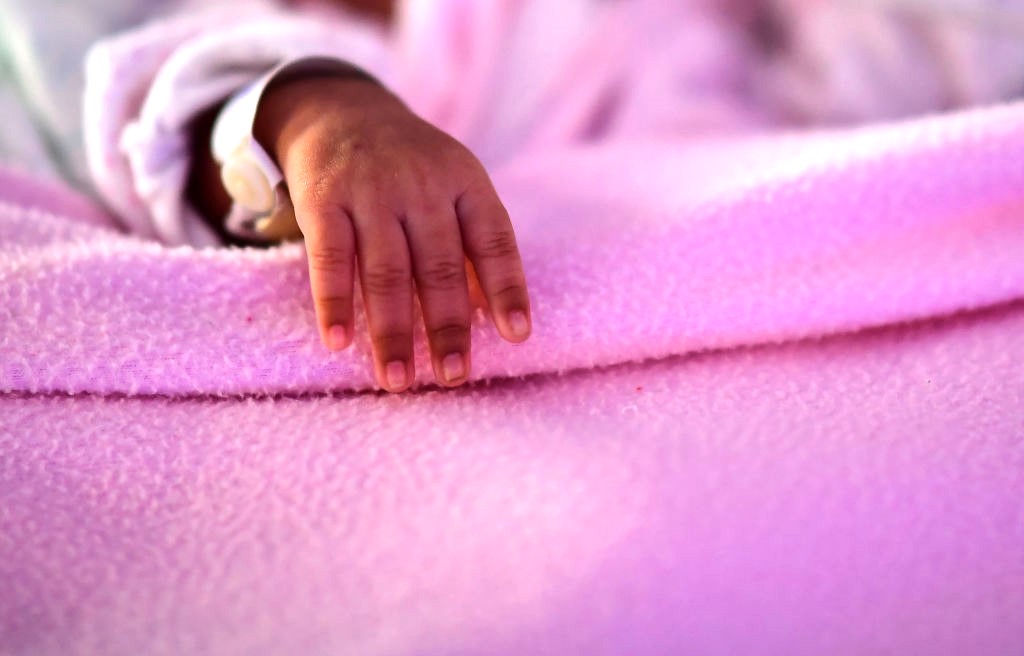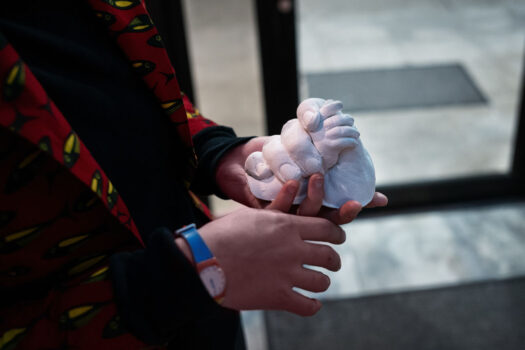


Over a 10-year period, 724 babies in Victoria and Queensland survived failed abortion attempts but were left to die by medical staff, and experts warn that number could be higher given the lack of data across most Australian jurisdictions.
Federal senators are investigating potential laws to govern how medical staff should respond when babies survive late-term abortion attempts.
“There is a pressing need for a federal law to give equal protection to babies born alive following an abortion …” wrote Prof. Joanna Howe in a submission to the Senate inquiry into the Human Rights (Children Born Alive Protection) Bill 2022 (pdf).
“In Queensland, for example, the Termination of Pregnancy Guidelines make it clear that there is to be no provision of medical care (either palliative care or life-saving treatment) to a baby who survives an abortion.”
In data presented to the inquiry, between 2010-2020, Queensland recorded 328 such cases, while Victoria recorded 396.
Data was incomplete from other states and territories, with one case recorded in New South Wales (Australia’s most populous state) and one in the Northern Territory.
The Northern Territory case involved a 2000 coroner’s inquiry into Jessica Jane, an infant born alive and left on a metal kidney dish—checked on regularly by a nurse but not offered any extra care—for 80 minutes before she died.
In New South Wales, a baby was “aborted” and zipped into a medical bag while still breathing at Westmead Hospital.
“There appears to have been a total abrogation of responsibility, let alone common humanity, on the part of those who should have born the burden of dealing with the child,” said Deputy State Coroner Janet Stevenson in her report.
Prof. Howe also warned that some mothers did not have adequate information about late-term abortions or receive counselling.
She pointed to a study of 1,419 women in the Journal of Obstetrics and Gynaecology that found 75 percent of respondents in their second trimester were more likely to go ahead with a pregnancy, compared to just 10 percent in their first trimester.
“In some cases, the mother may have been told—sometimes correctly; sadly, sometimes incorrectly—that the baby is going to be incompatible with life if it goes full term,” Wendy Francis of the Australian Christian Lobby told senators of the Community Affairs Legislation Committee on June 8.
“They are encouraged, or they decide themselves, to end the baby’s life prematurely so that they don’t have to go to full term.”
Francis also said there was an interest in keeping information about abortion vague.
“If the true statistics were to come out, Australians would be absolutely shocked. One of the reasons why the statistics on this particular practice are hidden is that … people conflate it with the issue of abortion, and we’re not trying to conflate this with the issue of abortion. We’re talking about a live child,” she said.
“Across the board, we find it very hard to get abortion statistics. One of these reasons is that there are some that are claimed through Medicare, and there are some that are the morning-after pill, so there would be a certain grey area with numbers.”
Pro-abortion advocates have opposed new laws saying it will limit women’s rights.
“It perpetuates myths and misconceptions about abortion care, reinforcing existing stigma,” said Dr. Catriona Melville, deputy medical director at abortion provider Marie Stopes International.
“Instead, support the development of national clinical abortion guidelines, which are, in fact, currently in progress,” she told senators.
Meanwhile, the head of the Public Health Association, Terry Slevin, wrote in the opening line of his submission, “This is not America.”
Slevin said that the proposed Bill echoed the “desperate and deadly politics of denying women’s reproductive freedom and rights to safe medical care that occurs in some parts of the United States. It has no place in our country.”
He went on to call the Bill an exercise in “value signalling”, saying the Bill should not use up any more of the Senate’s time.
Under former U.S. President Donald Trump, an executive order was signed directing the federal government to protect the rights of newborn children born either extremely prematurely or with disabilities. Current President Joe Biden repealed the order once in power.
However, following the U.S. Supreme Court’s ruling in Dobbs v. Jackson, pro-life-leaning political leaders across the U.S. continue to push to restrict abortion practices.
For example, in Alabama, Mississippi, and Louisiana, abortion practices have been completely banned, while in Georgia, abortion is prohibited after a fetal heartbeat has been detected, which usually occurs at around six weeks.
Adjunct Prof. Johnny Sakr of the University of Notre Dame Australia said children born should have the same rights as any other person.
“Refusing to provide medical care to a child who is born alive amounts to allowing a person to be killed, warranting the charge of homicide. Homicide, as defined by the Australian Institute of Criminology, is the unlawful killing of a person,” he told the Senate Committee.
While Dr. Bernadette Tobin, director at the Plunkett Centre for Ethics, supported the Bill saying, “Whatever the past history of whatever has caused that circumstance, that little human being is owed the kind of care that any premature baby is owed.”


